Y3K
Western identity never knew itself. Men of the West understood themselves as tribes and later nations, but never saw a need to unify as a civilization until they faced outsiders. Early attempts to unite began as clumsy political and religious networks, falling apart when the material goals which they attempted to safeguard became unstable.
All of that has changed. After the onslaught of liberalization that changed the West from organic nations into alliances built on politics and economics, it took several centuries for most of the natural leaders among Western peoples to see that something had gone wrong, and not just mildly. We were on a path to certain collapse and it required reversal, if we could but find the will to survive.
But in 2016, something curious happened: the West discovered that it did, indeed, have the will to live. Much of this came after the election of the first African-descended President in the superpower presiding over the West, the United States, and the explosion of immigration from the third world into Europe and North America. Suddenly, the results of our modern path were visible — and it became glaringly obvious that not to turn from this path would result in our destruction.
We live in interesting times.

Thomas Cole, “The Course of Empire – The Savage State” (1836)
I
The Return of Western Identity
With the imminent collapse of the EU and the postwar order in the United States, it became clear that a cultural shift was underway. This rejected former notions of what was “good,” which were ideological, and looked instead toward a commonsense realism about what constituted the best path for our civilization. This in turn resolved one of the great political questions of the 1990s.
In his 1992 book The End Of History And The Last Man, Francis Fukuyama posited that humanity had reached its final stage with liberal democracy, which would be the order of world politics for the rest of human experience. In a counterpoint, Samuel Huntington wrote The Clash of Civilizations And The Re-Making Of World Order four years later, in which he argued that liberal democracy had peaked and that future human diplomacy would be conducted between tribes of a religious and ethnic nature instead of organized politics. The conflict between these two visions hung over the next two decades like a specter.
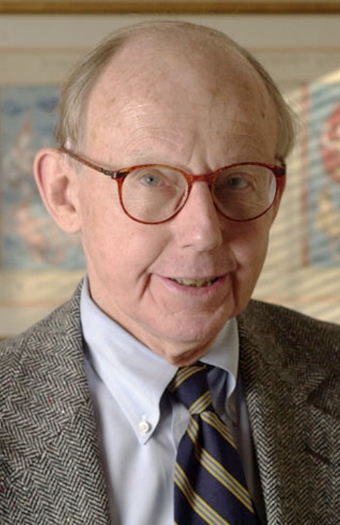
Samuel Huntington
As it turns out, history has bent more toward Huntington and less toward Fukuyama, which means that the thesis of liberal democracy as a human endpoint has failed, and with it our seemingly unshakable faith in democracy, equality, diversity and pluralism. Instead of an “end of history” which suspiciously resembled the trend of the past seventy years, the standardization of human societies through globalism brought a counter-movement in which national and cultural identity were more significant than political and economic designations.
This represented a reversal of human thought. Since The Enlightenment, contemporary thinking held that we could trust in the “reason” of individual humans, and observe them through democracy, consumerism and social popularity to determine our course of action. With the sea change that exploded in 2016, the answer came instead that human society should first decide what direction made sense, and people should cooperate toward that aim instead of being ruled by the mentally convenient intermediary of what was currently in vogue.
In this way, the passage of history confirmed that the future would be less Star Trek and more Lord Of The Rings. After a brief detour into modernity, or the series of notions beginning with the idea that all human possessed equal reason, the arc of history bent toward the traditional methods of human living: a strict hierarchy of ability and integrity, based in tribalism, where transcendental appreciation for this world and its metaphysical counterpart were not just a belief, but an experience found in daily life.
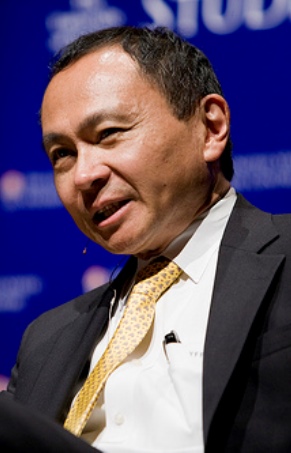
Francis Fukuyama
The death of rationalism, or the faith in equal human reason, meant in turn the demise of received truth, or ideas communicated through tokens, and the rise of discovered truth, or ideas found through the individual exploring knowledge that is cumulative, requiring the previous stage to be understood before the next could be visualized. No longer could it be assumed that “truth” could be written down, read by others, and replicated. Instead, reason was unequal, and individuals had to seek it for themselves through a combination of natural ability and self-discipline.
With that, the West entered waters uncharted since before The Enlightenment. Not only had a political order fallen, and a cultural assumption evaporated, but a fundamental philosophical shift was underway. Naturally this in turn unleashed subsequent questions about the future, including not least of all, what it means to be Western and how we proceed toward that destination. As with any change, that shift introduces new questions, challenges and a need for clarification about the most basic assumptions of our civilization.
These questions take a dual form, first consisting of a public reaction, and then a more private recognition of what is actually being asked:
Where do we go from here? This question actually points to the broader question of “What do we want?” We cannot move forward by responding to what is in front of us, like billiard balls knocked together on a table. We need to set a direction, and this brings on larger questions than we have confronted so far.
Who are we? While this question is mostly accurate, it breaks down into an underlying question: are we pan-Europeanists, wanting to create a “European race” for the future, or are we nationalists, believing that each ethnic group deserves its own identity, space and direction?
Is change too difficult? The underlying question behind this one is “How much of modernity do we need to give up?” with the greatest concerns involving lifestyle and technology, but secondary concerns wrapped around the convenience of modern life and the stability we perceive in a society direction by institutions.
Can we do this? In actuality, this question asks “Can we overcome ourselves?” Obviously radical change can occur because it has happened in the past, and if it avoids the usual hodgepodge of warfare and genocide, it will offend very few so long as it improves their lives. But to make fundamental changes, we will need to beat back our fear and the self-esteem we derive from this society and its lack of standards.
Is it pointless to hope? Underneath this question lies the more painful query as to whether high-IQ societies can survive at all. To date, all have collapsed, and it seems as if the collapse is inherent to humans, making us dare not hope to beat this problem. Since we have beaten larger problems in the past, this question fades away as we realize our strength.
The answer to each of these questions is bound up in the first: we must discover who we are, knowing that it is an immutable part of us, in order to know in what direction we should venture for the future. From that, we can understand what it is to be us, and what it will look like to be us after we fully shrug off the mind-melting fatalism of modernity.
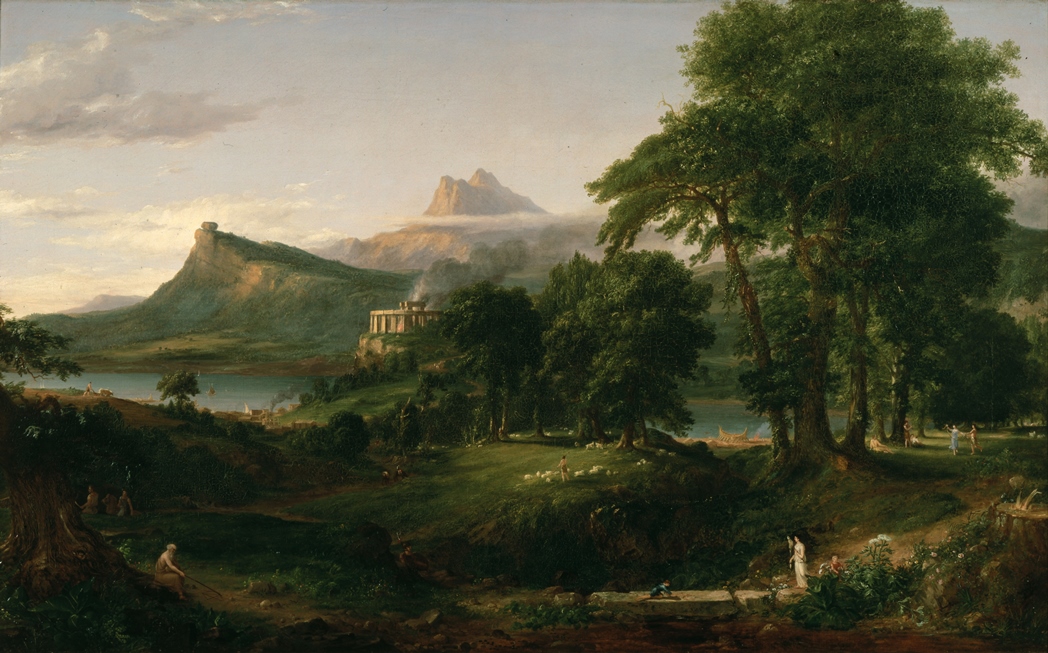
Thomas Cole, “The Course of Empire – The Arcadian or Pastoral State” (1836)
II
Downfall
What went wrong in the West? The disturbing answer is that the West experienced its downfall by the same mechanisms that destroy all high-IQ societies, raising the disturbingly nihilistic question of whether or not an intelligent human group can survive at all.
High-IQ societies die out because they achieve success and it destroys them. Early civilization has an inherent goal, which is to get itself organized to beat back nature, disease, disorder and military threats. When that is accomplished, it passes invisibly into a second stage.
In this stage, civilization must find a purpose larger than itself. Without achieving that, it will lapse into a malaise where its citizens repeat what succeeded in the past without understanding why. By doing so, they make success in civilization a question of appearance, or how their acts look to others, instead of what results they achieve.
This creates social control. Those who are rewarded are those who appear to be doing what is right, and because of the wealth of the civilization, it does not directly matter if they do anything productive. As a result, those who appear to be good get ahead of those who are actually good.
An existential crisis sets in. The most competent are being penalized because they must both do the work required and compete in appearance with those who do not, putting a double burden on them. They also find themselves put into the position of management, or keeping others functional while not being rewarded for the same.
Exhaustion settles in among the natural leaders of society. Their lives have become mostly burden, and so they cease to reproduce at the same time that those who are less productive, who cannot restrain their desires, have a greater number of offspring. Civilization enters a death spiral of reduction of quality and increase in quantity.
This in turn gives rise to ideology, or thinking about how things “should” be instead of how to make them happen using known methods. Ideology addresses the fundamental fear of individuals that they will not be included in society for having fallen short of its standards. Its solution is to mandate that everyone be included, regardless of contribution, which makes it popular. Ideology rationalizes decline and scapegoats a lack of inclusion — “inequality” — instead of trying to reverse the collapse.
The motivator for those who join in the ideological crusade is the ideologically-enforced guarantee that they, personally, be included. For this reason, ideology represents a form of collectivized individualism which acts like a gang or cult, working as a special interest against the host civilization by attacking those who find fault with any of its members.
This new movement forces acceptance of all, which encourages the growth of those who lack specific skills or direction but reproduce at higher rates than those who are more cautious about bringing children into the world. These directionless people form a mass that must be manipulated by ideology to keep society together, and this introduces politics, or manipulation by appearance, as the standard for leadership.
These changes take place over a thousand years or more and slowly change a civilization from a thriving place to one where its citizens are domesticated, entirely dependent on the group for direction, and parasitic in that they hope to use the wealth of civilization for their own purposes. With this many contradictory directions happening at once, civilization dissolves and is replaced by a marketplace.
Individualism leads to egalitarianism, which is the equality or acceptance of all people. This effectively makes socially negative behaviors into socially approved behaviors, and allows the destructive impulses of humanity to come forth and be legitimized as natural. This gives rise to several behaviors:
Solipsism. People retreat into worlds of their own judgments, feelings and desires because they receive no guidance from society. This makes their individualism more than a preference, but a basic mental state, and they react violently when disturbed from their illusions.
Materialism. With no higher ideals that they are willing to strive for, people become reliant on material convenience and comfort, even though in order to achieve meaning they must be willing to reach out into the world and find things worth striving for.
Atomization. Cut off from all traditions, and eventually from family and culture entirely, people exist in worlds of their jobs, apartments and favorite restaurants and thrills. Beyond this, they know of nothing, which makes them desperately lonely and miserable.
Negativity. In a society without purpose, nothing has any significance beyond how it feels or appears. This means that any achievement is a waste of time and will be instantly forgotten, leaving people in a state like prison, trying to amuse themselves until their sentences end.
The West went down this path before the Magna Carta and the Peasant Revolts, during which time it endured assaults from Mongols, the bubonic plague and Muslims. In its weakened state, it gave in, and the intellectuals crowned egalitarianism as the future.
During the period after WWII, liberal democracy became the standard for governments across the first world, and adopted its mix of socialist welfare programs and capitalist funding, culminating in open-borders globalism and diversity, both of which were certain to erase the founding groups in every nation.
The result of this, several hundred years later, is a society permanently divided between realists and ideologues. The realists want what is functional and the ideologues to push for more equality, diversity, tolerance, and democracy. The problem is that this division is looking backward, not forward, and few if any are considering the question of ending the decline of Western Civilization which has occurred during this time.
As a result of this split, the West is headed into a period of “Balkanization,” where people separate into special interest groups including those formed of religion and ethnic background. This means that the nation-state will die, and be replaced by many local communities, in turn exposing the nation-state to attack because these groups will not unify to defend it.
 In each community, the local group will enforce its rules and eject those who do not conform to whatever factor it is that unifies the group. If the larger nation-state survives, it will be through taxes and hiring mercenaries for defense, which will in turn make it vulnerable to anyone who can induce groups within it to attack the state in numbers greater than its hired force.
In each community, the local group will enforce its rules and eject those who do not conform to whatever factor it is that unifies the group. If the larger nation-state survives, it will be through taxes and hiring mercenaries for defense, which will in turn make it vulnerable to anyone who can induce groups within it to attack the state in numbers greater than its hired force.
Small groups will exist in first-world nations that can afford the kind of defense required to maintain a state, but the rest will subsist in third-world conditions. Perhaps some will swear allegiance to corporations instead of nation-states, and these will have private security to defend themselves. Against an organized national army however, none of these small groups will stand a chance.
Simultaneously, there will be a great crash as the programs of the modern era fail in near-unison. The economies, based on speculation, will deplete; pollution will destabilize local climates and end the relative low cost of food; immigration will provoke revolutions against the balkanized states by wandering stateless mobs; the “developing world,” whose economies were always dependent on the first world, will find itself in a state of massive recession, and traditional food sources like wild-caught fish and game will not exist.
In addition, the West has invested itself too deeply in the idea of the “service economy,” hoping that by inflating its citizen rolls with immigrants it can sell them enough services to be profitable. On the contrary, it has found that the new groups do not consume like the old, meaning that bankruptcy is inevitable at a time when its governments are deep in debt as are its citizens.
This is how the West got into the situation in which it now finds itself: poised on the edge of a precipice, looking at sure doom, with absolutely zero voices in public recognizing the problem — the collapse of a society through success — and therefore, no one able to save it. It must find an entirely different path or like so many before it, dissolve into the dust of forgotten history.
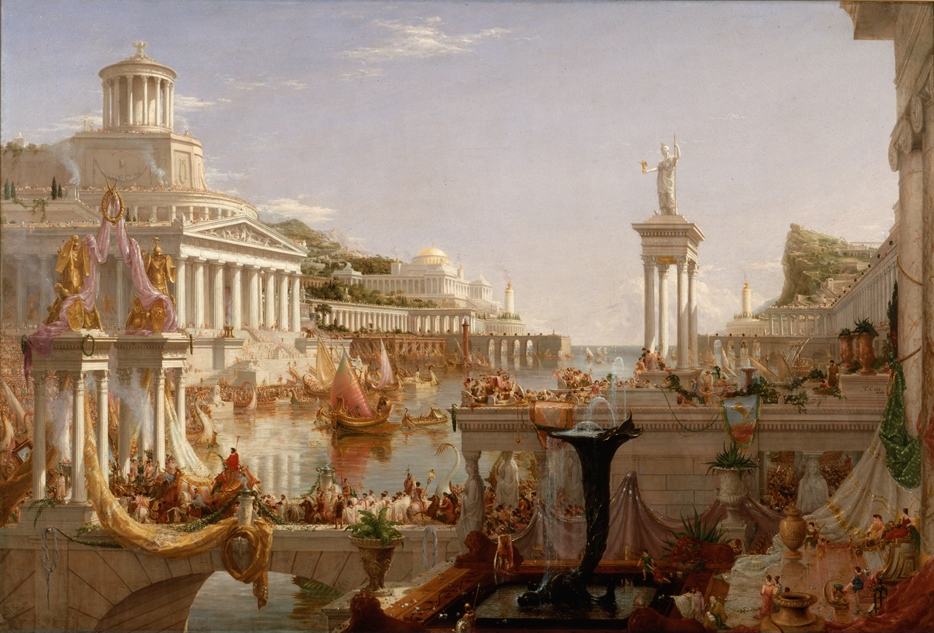
Thomas Cole, “The Course of Empire – The Consummation” (1836)
III
Forming A New Western Identity And A New Christianity
This places the West in an awkward place. What we thought we were has become corrupted, the distant past is forgotten, and so we must re-invent ourselves using the eternal principles of who we are. But those, too, are in doubt because of linguistic corruption from centuries of decay.
We cannot avoid the near-past by inverting it, or “doing the opposite.” That will fail: to try to evade something by reversing course alone is to be defined by its direction, only in the inverse. For that reason, we need a positive goal that is unrelated to the bad, or a path to the good, and it must be the type of good that is specific to us.
This raises the question of what defines Western civilization and identity in the first place. Richard Spencer suggests an active and outward definition:
Think of the concepts that are now designated “problematic” and associated with whiteness — power, strength, beauty, agency, accomplishment. Whites do and other groups don’t. In the banality of normal life and in our most outlandish dreams, in both our Narrative and theirs, to be white is to be a striver, a crusader, an explorer and a conqueror. We build, we produce, we go upward.¹
Without contradicting that excellent summary, it is possible to suggest that the outward definition of Western is an effect and not a cause. Instead, we may summarize the Western outlook in a single word: reflective. We are the humans that reflect on themselves, their role within nature, and aspire to a transcendental vision, or one that accepts nature as it is and attempts to find in it a superior order to our own wayward impulses.
In this reflective nature we see both our aggressive warlike side and the regal and contemplative side of the West that has always pursued meaning. We do not awaken and become energized by material conquest alone, but by the thought of establishing a balance and harmony to the order of our lives with respect to the world around us.
Our aggression is found in setting things to right, improving qualitatively what is there, revering the cosmic and natural, and taking from that divine order a spark of inspiration with which to motivate ourselves to improve. We are the tribe of self-discipline, of mental precision, and of grand dreams. We are the creators and the daydreamers, the warriors and the artist, all bound up around the singular threat of looking for order, purpose and meaning in existence.
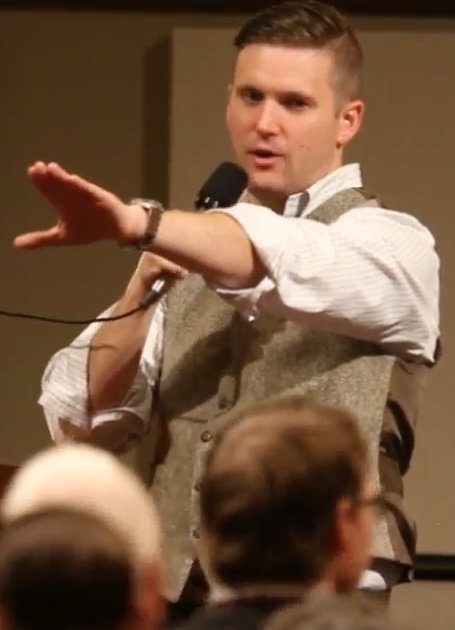
Richard Spencer
This is the “Faustian” nature of Western man: we are never still, because none of our goals are finite. We are not satisfied with conquest for its own sake, but will venture onward into countless battles with the notion that we are serving our role in the order of nature and by doing so, are improving what has come before us. Only Western man conquers and improves; the rest of our species conquers to control. We understand the generative principle which is that one cannot possess any aspect of life, only make a cyclical process occur by which the excellent is re-created anew in the return of whatever cycle governs that aspect.
We are what we are. This is immutable and as distinct as any other species from all the rest, but it has a dimension which we do not normally see: the qualitative. We can be what we are, and improve our interpretation of what that eternal essence is, and in so doing, drive ourselves toward greater heights without changing our identity. This reveals identity to be a question of vectors, or motion toward certain directions without ever necessarily reaching them in tangible form, and not discrete, categorically-defined “issues.”
What it is to be us exists on a spectrum from the bare minimum to an infinite point of improvement. As with all things in this world, quality is relative, and so we can be at any point on this spectrum and still make ourselves greater. Our path is a vector toward an unlimited source, not a finite point.
Although this sounds grandiose, it means to desire not just an end to our problems, but the creation of a new golden age. We cannot run from our problems, but must aspire to something that so seizes up all of our hopes and energies that we step over our stagnation and quagmires because we are being propelled toward something which awakens aspiration in us and excites us with possibility.
This path affirms our uniqueness. We are not distinct because of what we are, but because we are on a journey from greatness in the past toward more majestic excellence in the future. The path defines us and inspires us to be strong like Vikings, creative like Romantics, pious like the Amish, and wise like the ancient Greeks.
Our biggest task lies in finding the will to survive, and through that, the will toward excellence. We will not find our motivation in pragmatism and disaster-evasion, but only through a positive goal that makes us inspired to take it up. As Houellebecq observes through one of his semi-autobiographical protagonists:
And yet I knew I was close to suicide, not out of despair or even any special sadness, simply from the degradation of “the set of functions that resist death,” in Bichat’s famous formulation. The mere will to live was clearly no match for the pains and aggravations that punctuate the life of the average Western man. I was incapable of living for myself, and who else did I have to live for?²
Two paths lie before us, one leading to a type of heat-death of the soul brought on by frustration, and the other toward a limitless expanse of potential greatness, just awaiting our touch. For us to undertake the path to greatness, we first must desire to be good, so that we choose what is bigger than us over our own inwardly-convergent impulses, and from that, we can see that the good that matches us is what has historically made us great, extended into the future instead of backward-looking.
With that we can understand the immutable quality that defines what it is to be Western. Unlike the other cultures of the earth, the Faustian Western civilization needs greatness to strive for and a reason why the world makes sense and is good outside of the individual. This is found in understanding a natural order in which we serve a role as a type of ordering principle.
Many argue that the West cannot exist without Christianity, but this seems to be a reversal of the order of things. The West cannot exist without spirituality, and Christianity needs to become Western if it is to be our religion. Although the Christian faith is alien to us, having come from Jerusalem and not Athens, it compiles the best of ancient learning into an easy text, and is most Greco-Roman, Hindu and Nordic “pagan” ideas. For this reason, Christianity was Westernized easily, but perhaps not enough.
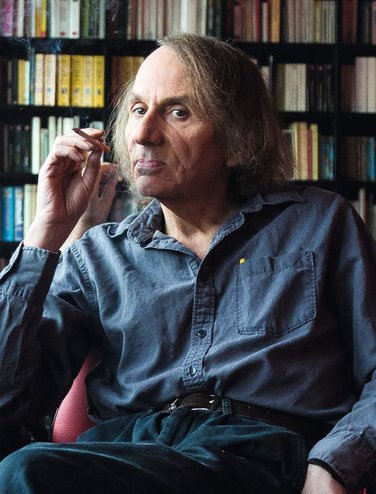
Michel Houellebecq
Where the idea of the East is to subsume the individual to the whole, the idea of the West is to take the whole into ourselves and discipline ourselves with it, becoming more natural instead of attempting to negate our intuition and instincts. Christianity contains this idea but obliquely so, and is popularly misinterpreted because of the very factor which makes it powerful, which is that it is based in a written text that anyone can interpret.
Contrasting that is the Western notion of hierarchy, which is inherently esoteric, or based in the notion that knowledge is both cumulative and dependent on the perceiver. In the Western canon, we live as part of a natural hierarchy, and that pattern extends to within our own society, with some able to address more complex and far-reaching ideas than others, in a spectrum. This rejects Eastern “esotericism” which holds that anyone who indulges in certain acts, like meditation or intuitive thinking, can reach the same conclusions as any other.
An esoteric Christianity would challenge the modern Christian establishment by not being the religion of peace and light, but a call to warfare and order. It is not individualist Christianity, in which the focus is on the person approaching the religion in search of answers, but a holistic order in which nature and humankind are united by a timeless order of life and belief.

François Xavier Bichat
While defining such a Christian renewal is beyond the scope of a single article, it might suffice to say for now that it would create an order inseparable from that of aristocracy in order to create the type of harmony and balance through aggressive righting of lesser quality that marked the pagan beliefs. In it, heroism would be the acceptable form of sacrifice, and the example of Jesus would move from martyrdom to conquest through rebirth.
Currently, Christianity is dying in the West because our religious leaders have taken an exoteric path by admitting the Enlightenment notion of human equality into the religion. This drives away the thoughtful, and degenerates the religion into a form of entertainment, where as with a rock concert, the participant experiences the event through a filter of themselves, projecting themselves into the equal form of the ceremony leaders.
An esoteric future for Christianity will not be dualist, as the neo-Platonists insist, but monist, or seeing the metaphysical and physical as being part of the same world and playing by the same rules. There is no “other order” which contradicts our experience; the world is, as designed, perfect, and any additional dimensions or layers to it will behave similarly.
Those who say that the restoration must begin with religion have forgotten the lessons of history. Without a primary drive to be ourselves, and to thrive on that basis, we do not have something to live for beyond the self, and therefore cannot accept religion more than as a doctrine, as an experience which is lived in everyday life. Without that stability, it withers.
This means that the future of the West, should it choose to have one, is found in “bootstrapping”: establishing a sane social order so that we may have spiritual understanding, and then allowing that spiritual knowledge to infuse our realistic acts as well, so that realism and spirit converge into what can only be called a reborn Tradition.
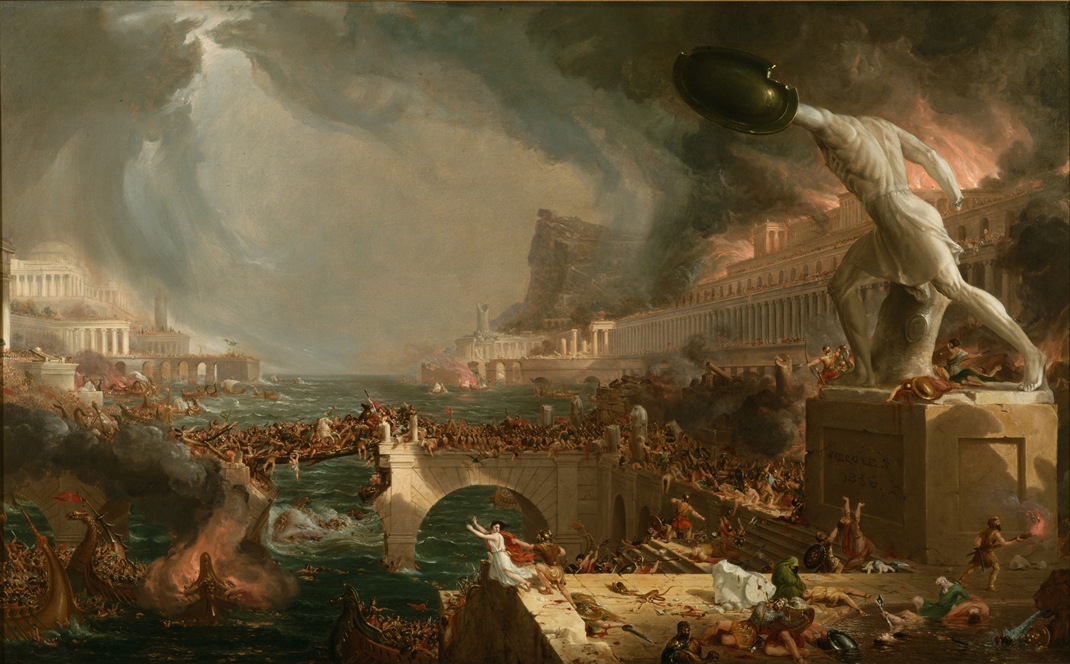
Thomas Cole, “The Course of Empire – The Destruction” (1836)
IV
Visions Of Our Possible Future
Those on the “wrong side of history,” as the forces of decay voice it, seem to have a singular vision: the society of a thousand years ago translated to a technological time. This retains the best of modernity and skips the degeneracy brought on by individualism, and living for individual sensations and material pleasures instead of acting toward a positive goal toward which all tangible objects are a means to an end.
We imagine families living in comfortable houses in small villages, far removed from the degeneracy of the city, which by its anonymity and the ease with which one may find a job, rent a flat, and eat out at restaurants promotes the thoughtless, selfish and callow in humanity. We visualize a time of great culture, with symphonies worth hearing again and novels that stoke the mind, ruled by leaders who care about more than simply convincing the thronging herd to vote for one or another of the pleasant-sounding ideas which will fleece them of their money.
At some level, every one of us thinks of a time in which wholesome, natural living and honest morality rule the day, beating back the manipulation and individualism which have categorized the last thousand years in increasing grades of pervasiveness. We imagine people who are geared toward the good, and intolerant of the bad, centered around their identity as an ethnic group, a series of values and customs called a culture, and as the real meaning of individual, people who make the moral choice to do what is right in all aspects of life with vigilant attention, defining themselves by their qualities and not outward accessories.
This world is attainable, but the secret is that it starts with having a saner vision of leadership. With The Enlightenment, leadership was replaced by management which hoped to keep the herd in check. That administration then proved to be self-serving, as one might expect upon recognizing that government is a self-interested corporation and not a divine entity. All of our problems distill to the fact that through our false leadership, we have made mistake upon mistake, following the ideological goal of Utopia rooted in equality.
Rejecting equality restores hierarchy, and gives us a basis on which to rule ourselves: instead of looking to see what is popular, and assuming it is right, we let those who have proven the ability to discern right from wrong analyze reality to find what is right, and lead us in that direction. This gives rise to “four pillars” of classical Western civilization that can carry forward into the future:
Aristocracy. A society faces two choices: it can either assume that its wealthy and powerful people are good, or it can entrust wealth and power to those who have proven themselves to be of the best. The latter eliminates the constant tension over politics and puts it into the hands of those most likely to make intelligent and compassionate long-term decisions, where most people lack this ability and in crowds, “compromise” to a convenient version of the current trajectory.
Culture. Culture provides a decentralized form of standards enforcement that does not involved government, which is only effective if it can provide n+1 incorruptible police where n is the number of citizens. With nationalism, every ethnic group is its own nation, and its cultural standards are enforced by citizens on each other with acceptance as a reward for good behavior and ostracism as a disincentive to bad. The Enlightenment™ demanded universal acceptance to short-circuit this method.
Hierarchy. Hierarchy takes two forms: first, we need a caste system so that the people making decisions in society through informal methods are toward the top of the ability scale, and second, we need economic systems which favor markets over command economies, but regulate them with the caste system. When the consumers who form the market are on the right side of the bell curve, better products prevail. We know socialism and the classless society fail in all forms and so they must be avoided.
Transcendence. Just as we can either give the wealthy and powerful positions of leadership, or can take the natural leaders and give them wealth and power, we can either look at what people are doing for direction, or decide what our direction should be and ensure it is what people are doing. Part of this means transcendence, or appreciation of the order of life and nature in preference to human intent and other emotional judgments. The other part is that a sane and healthy society quests for a sense of beauty in the metaphysical as well as the physical realms.
A civilization based on these four pillars will find itself heading in a different direction from equality, not rebelling against it like the dictatorships of the middle of the last century, but choosing an entirely distinctive path because that path is right, and not merely as a reactive response to Leftism. This is the only way out of the disaster we are in, and the timeless way of having a society of excellence.
Technology and economics can mesh with this when we ensure that those who make decisions on every level are natural leaders, or people who are born with the ability of discernment and thus can anticipate the long-term consequences of their actions. This gets us out of the zone of mob rule.
 Part of the wisdom of the above is that it rejects formal structures created of rules, regulations and laws and replaces them with informal structures based on human judgment. This is more responsive to local variations and more able to consider people as actual human individuals, and pay attention to the specifics of their circumstances. It is not uniform like the modern method, but fairer and produces better long-term results.
Part of the wisdom of the above is that it rejects formal structures created of rules, regulations and laws and replaces them with informal structures based on human judgment. This is more responsive to local variations and more able to consider people as actual human individuals, and pay attention to the specifics of their circumstances. It is not uniform like the modern method, but fairer and produces better long-term results.
Where formal structures set up proxies or intermediaries that can be “gamed” by those who adhere to the letter of the rule and not its spirit, informal structures are judged by results alone, which includes knowledge of past outcomes. This gets around the massive corruption engine that government becomes because it is easily manipulated from within, and soon people are responding to the symbols of the rules which lead them down certain paths without reference to reality, plunging them into unrealistic death spirals.
A future based in Western identity might involve many nations of smaller size, united into a defensive league in case of outside interference, comprised of a network of small cities and towns separated by forest. In these, the aristocrats control power and wealth; the higher castes regulate business by their purchasing habits; each person has a place based on their abilities; those who have nothing to contribute are moved on. Only that way do we avoid the crisis of modernity.
This future Western society would not be a Utopia. Instead, it would have frequent wars and constant internal struggle between good people and bad people, with the good beating back the bad by using their social power. But most of all, it would be a time dedicated to life itself: the feeling of normalcy, contentedness, and feeling at home among others like oneself.
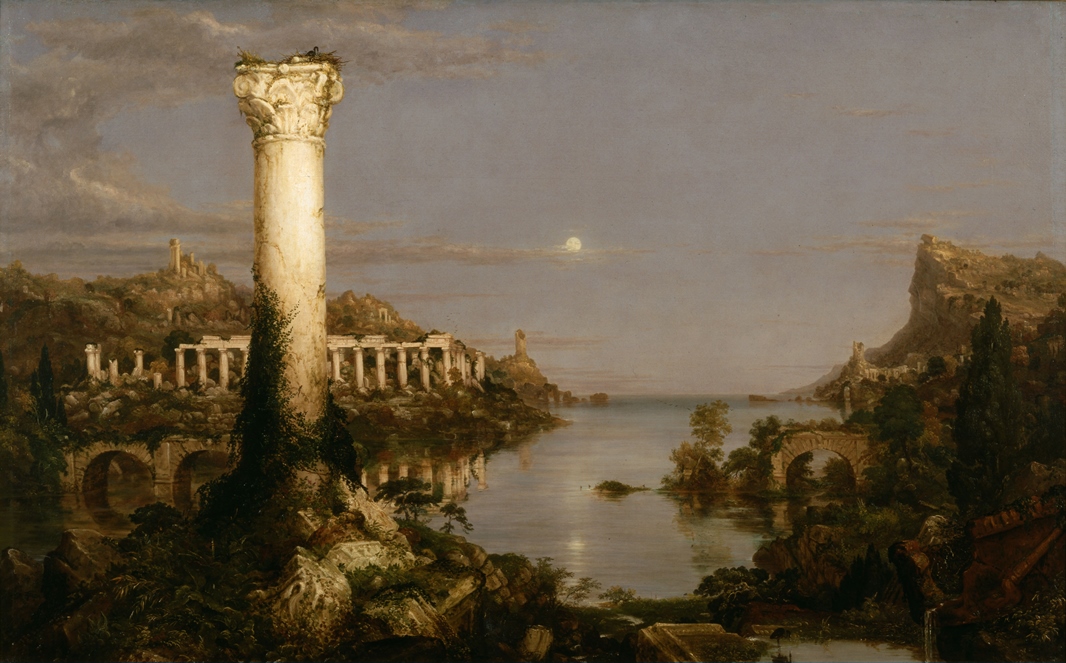
Thomas Cole, “The Course of Empire – Desolation” (1836)
V
Challenges
There are only ten billion places where a Western restoration can go wrong. A single word, in the interpretation of one action in a minor detail, can set a precedent for interpretation which will ruin much bigger things. Morality does not know size; any infraction, no matter how small, can change thinking to reward the bad and punish the good.
However, we stand on the threshold of doing what no other society has done to date: beating the civilization disease that causes all high-IQ societies — so far — to collapse. For us to do this, we must recognize the source of decline, find an alternate purpose, and adopt a social order to meet it.
Our biggest challenge will be our own egos. The Western mind tends to be individualistic, first in a rugged sense of independent striving, but then when civilization becomes dominant, it takes on the role of indulging personal intent at the expense of our shared purpose. We are most susceptible to this as a high-IQ population that values independent thought, which by its very nature as a reflective group is socially weak because we are more geared toward independent thought.
After that, our greatest challenge is resistance to splintering into special interest groups. When castes are turned against each other, or regions, or any groups decide they must share rule with the king, others in turn associate with their own groups because they have lost the sense that society as a whole is acting in their interests, and thus feel a need to protect themselves and achieve revenge on what they view as a betrayal.
Another struggle will be to defeat pity. We must remember always that there are only two ways: either the best oppress the rest, or the rest oppress the best, leading to an empire of incompetence. Strict hierarchy and honest but compassionate recognition that people are only what they are serve as our only defenses here.
On the other hand, we must resist scapegoating, which seems like an opposite of pity but in reality is similar because both rely on treating other people as objects of our own projection. Healthy societies are warlike and cruel to that end, but not cruel for the sake of cruelty itself, nor prone to keep others present for the mere sport of abuse. Scapegoating allows us to pick an easy target in lieu of solving the much harder problem of correcting the structural defects of our society and reversing its decline.
At the same time, we need to avoid falling into the cow-like rationalization of being “nice.” Nice implies a means over ends calculus where it is more important to be polite and deferent than it is to achieve what one must in life; this is why purpose is essential, so that we can compare our impulses to our goals and know when we are self-deceiving.
Above all else we must avoid blasphemy, with the caveat that blasphemy is not speech against our faiths and nations, but ideas which seem to be promoting those but in reality are subverting them. The man who praises God but imposes conditions that reduce God to a subset of what He actually stands for, or the fervent patriot who swears to his nation “because” it has certain ideals of his own creation, are both forms of blasphemy.
We also will struggle with tunnel vision. Our tendency as individuals is to take stock of a situation and form an impression, then rationalize it as correct by filtering out contrary data and assembling a narrative from what remains. This pitfall is innate to the high intelligence mind but, the higher the intelligence, the better the power of rationalization and filtering.
Perhaps it is right to mention outside forces here, but upon reflection, this is a minor detail. Every other group works in self-interest, and their interest is to conquer us and assimilate us. If we can be honest about this, we will remain a tribe alone and will never invite them among us where their self-interest can conflict with ours and harm us.
It is also possible that other groups will oppose our separation and maturation. However, since every group acts in self-interest, other groups will oppose anything we do that does not weaken us. For this reason, any opposition is a fact of life and not brought on by our specific choices, so it is a constant except when we are making bad decisions.
The final temptation, because it can adopt infinite forms, is Crowdism. This is the psychology which destroys advanced societies: individualists, fearing they will be excluded, form a special interest group that agitates for collectivized individualism, or mandatory inclusion, otherwise known as egalitarianism.
Crowdism takes any form, even among Right-wing parties. Anywhere there is an individual tempted by ideology, there is a group waiting of the disaffected — neurotics, self-pitiers, wrongdoers, lost people, unhappy people — who will gladly join up like a ball of dough to destroy us.
Our greatest threats come from within. Great civilizations die by suicide, not murder.³ Our only salvation against this is placing those with the best judgment in power. Either the best oppress the rest, or the rest oppress the best. Our future will be determined by which we choose.

VI
How To Reach The Future
Life in the modern West is depressing not just because everything is such a failure and no one will admit it, but because pulling ourselves out of this tailspin just seems too difficult. The solution to this is to take “baby steps,” or small motions toward an ultimate good.
Our intermediate goal is a process of bootstrapping by which politics protects culture and spirituality, and those then enable a re-interpretation of civilization to a higher level, which in turn influences leadership in a feedback loop. This will protect us from the immediate insanity and allow our culture to develop without being solely a reaction to what is now.
 The first steps have been taken. A 1990s culture marked by the popularity of black metal, the work of Michel Houellebecq, and an increasing internet anti-modern presence has given way to a convergence of ideas among the New Right, Neoreaction, Alt Right, Radical Traditionalist and Social Conservative spheres. That manifested in the Tea Party and UKIP, ultimately forming the hit-the-stop-button votes for Brexit and Donald J. Trump.
The first steps have been taken. A 1990s culture marked by the popularity of black metal, the work of Michel Houellebecq, and an increasing internet anti-modern presence has given way to a convergence of ideas among the New Right, Neoreaction, Alt Right, Radical Traditionalist and Social Conservative spheres. That manifested in the Tea Party and UKIP, ultimately forming the hit-the-stop-button votes for Brexit and Donald J. Trump.
The Left and its cohorts who simply favor civilization decline for their own profit were taken aback by these changes. They thought they had won, and suddenly resistance manifested. These elections are more important however because they show a renewed spirit and inclination toward Western identity, which in itself signals the end of the reign of liberal democracy and the rise of a desire to un-do The Enlightenment.
Our first steps are negative ones: we must remove the rules which hold us back. These include all laws against freedom of association, such as Affirmative Action and Civil Rights law, as well as any dysfunctional Leftist programs such as welfare and entitlements that we can dismantle.
Leadership during this time must be very cautious. Conservatives have a habit of focusing on large, obvious threats and ignoring the corrupting influence at home, which is fitting since most conservatives work too much and spend too little time with their families, which is mirrored in how they treat their nations. We need no more wars; we have had enough. People need to see instead that conservatism delivers a better way of life both as realistic ideas, and as a practical experience. We must make life better for ordinary, normal people.
As that succeeds, it makes sense to remove any anti-Darwinistic policies. Welfare is the most obvious, but others such as socialized medicine, retirement benefits, any form of government or foreign aid, and propaganda centers like education and media support must also pass along. The ideal target would be to reduce government to military and the building of roads, and cast aside the entire ideological side of government that is most of our budgets.
 We have an opportunity here to also enact sensible environmental changes. The wisest would be support for alternative forms of energy, conservation of land and rewilding of poorly utilized spaces, and ending any policies which support overpopulation, including immigration and any laws designed to save the unwary from themselves or support them.
We have an opportunity here to also enact sensible environmental changes. The wisest would be support for alternative forms of energy, conservation of land and rewilding of poorly utilized spaces, and ending any policies which support overpopulation, including immigration and any laws designed to save the unwary from themselves or support them.
From there, per the bootstrapping agenda, it is time to initiate a cultural wave to restore our sense of identity and greatness. Our imagery should evoke the past and an unbroken heritage; our funding should go toward classical arts; our sentiment as consumers should reward advertising and products designed for the traditional nuclear family of unbroken heritage.
After that, a spiritual wave can be initiated. The churches have lingered too long in a state of neurotic nonsense, and it is time to discourage people from going to church unless that church joins with the spirit of the cultural wave. When the liberal churches die out, new ones will take their place, addressing the concern that has always brought people to church: a desire for guidance, especially for their children.
Our people must speak out against that which works against us and use our power as a demographic to crush any companies or institutions which support it. In exchange, we need to produce our own art and products and defend those vigorously as being “for us, by us,” letting criticism roll off our backs.
We are not looking for a path backward. The past is past, but also, the past is alive. We desire to carry forward the principles and values of the past into an uncertain future, and we do this by keeping focus on what makes us who we are. With that as our standard, we cannot fail, and stand to inherit not just our lands, and the earth, but the stars and beyond.
– Brett Stevens writes on the topics of nihilism, deep ecology, nationalism and anti-work. He opposes diversity in all of its forms, including racism and anti-Semitism, and favors a society ruled by aristocrats, organized around hierarchy, oriented toward transcendental and realistic purpose, and ruled by culture which requires extreme nationalism. He has been published at American Renaissance, AltRight, Alternative Right, Return Of Kings, Nihil and the blog where he serves as editor, Amerika.org. His first book, Nihilism, was published via Numen Books in 2016.
Endnotes:
- Richard B. Spencer, “Long Live the Emperor“, Transcript, Speech delivered to the Conference of the National Policy Institute: Become Who We Are (21 November 2016).
- Michel Houellebecq, Submission (Farrar, Straus and Giroux, 2015) pp. 168-169.
- Attribute to Arnold Toynbee, in A Study of History (1934-1961).
Citation Style:
This article is to be cited according to the following convention:
Brett Stevens, “Y3K” SydneyTrads – Weblog of the Sydney Traditionalist Forum (11 February 2017) <sydneytrads.com/2017/02/11/2017-symposium-brett-stevens/> (accessed [date]).

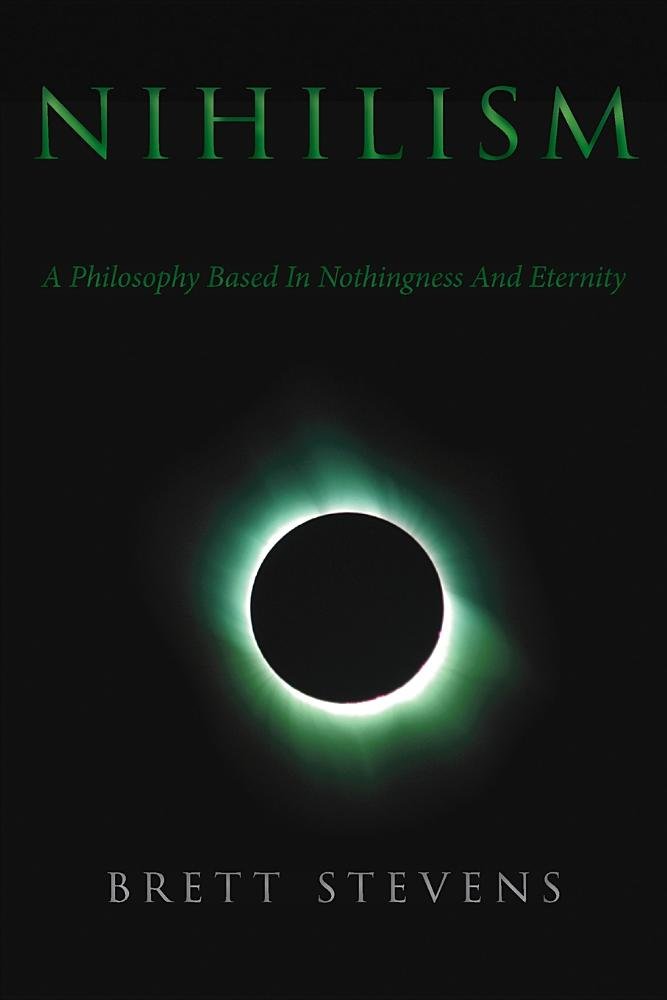


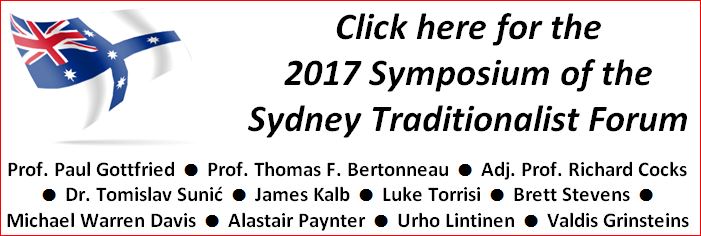

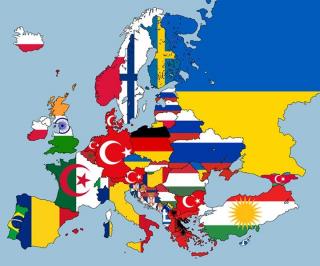

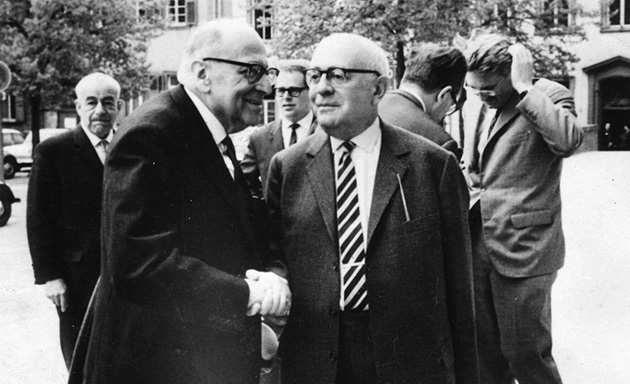
Be the first to comment on "2017 Symposium – Brett Stevens"